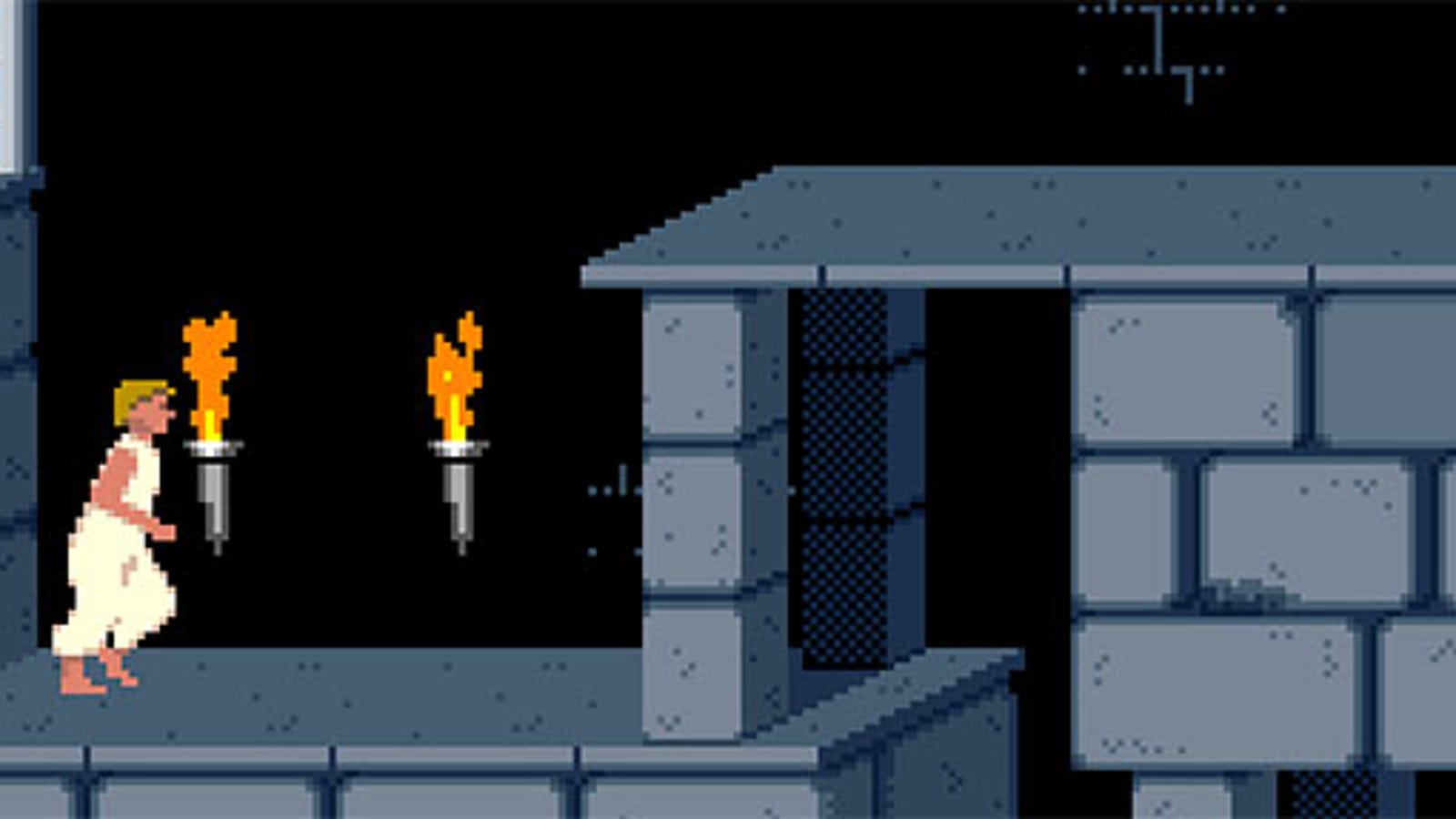
For years, I was aware of Prince of Persia without playing it. I loved platform games, but Prince of Persia didn't feel like it was just a platform game. I detected something else in it, something too smart for me, too challenging, too close - and slightly creepy - in its approximation of real human movement. I played a lot of platformers on the Master System, where I was often taking funny cartoon animals for a walk and a jump: Psycho Fox, Mickey (and his Castle of Illusion), and the feathers-and-scales quick-changes of Wonder Boy 3. Prince of Persia ran on more grown-up machines, like the Amiga, and if I had to put a clumsy phrase to whatever that kept me away from it, it was that: the game felt too grown up for me.
Now I am ostensibly grown up, I've spent the last week trying to understand why I ever felt this way. It certainly wasn't because of the plot - save the princess - or due to any nuanced understanding of actual Persia. With its blonde hero and evil viziers, Jordan Mechner's game was clearly based on the old Hollywood take on its subject matter. (More on this later.) But when I looked at screenshots this week and played Prince in a browser in a way that would have blown the mind of the person I was in 1989 when the game was first released in North America, I felt that same sensation. I remembered the slightly chilly confusion I had felt when I first saw the game running at friends' houses, often on machines that belonged to older siblings. It was the sense that I was looking at something very new and - somehow - also very old.
The difference - and it's over thirty years' difference - is that I now love this feeling. It's nostalgia, but with something stranger mixed in there too. And in playing the game a bit - and having just played through the latest installment in the series, the glorious Prince of Persia: The Lost Crown - I think I may be starting to understand my reaction a little bit better.
